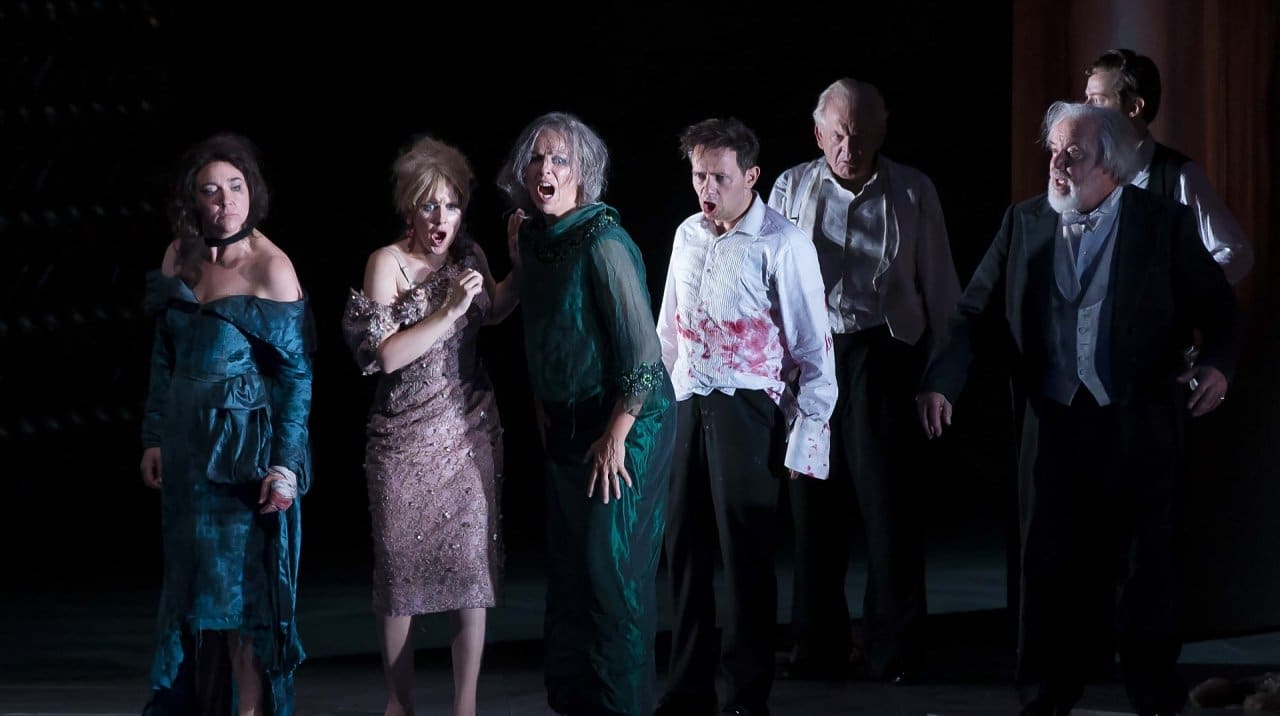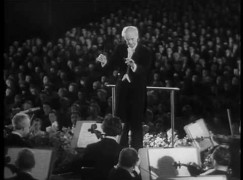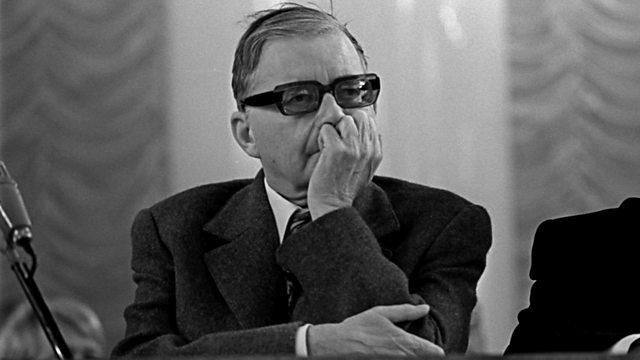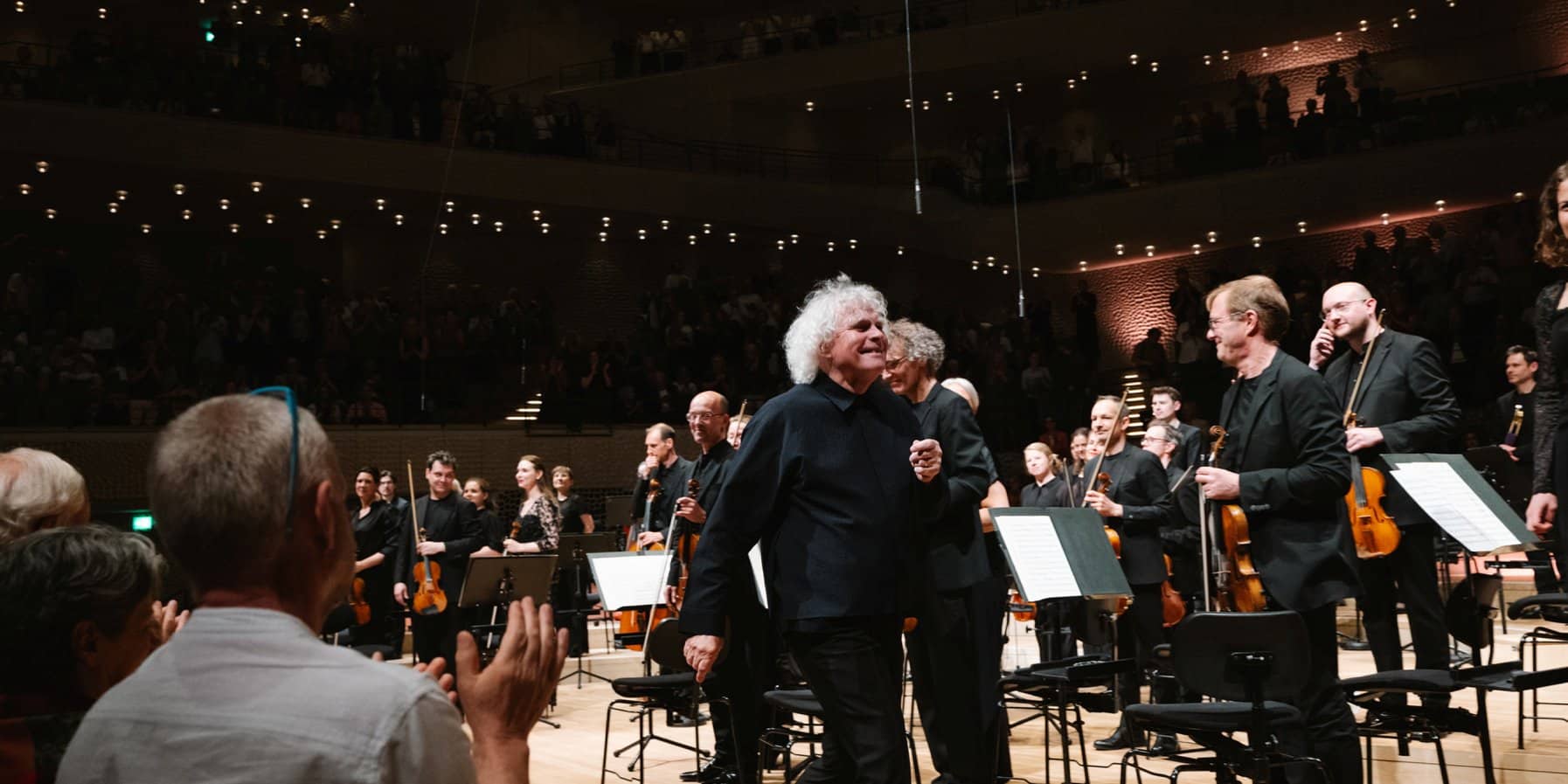Opera of the Year (3): A dissenting voice amid Ades raves
mainIgor Toronyi-Lalic, arts editor of the contrarian Spectator and a notable advocate of advanced modern music, went to Salzburg for The Exterminating Angel.
His review breaks ranks with the massed British hallelujahs, attacking Ades for not being daring or modern enough in his score.
It is a fine review:
Such is the sadism of the vocal score, you don’t immediately realise this is an all-star cast (Christine Rice, Iestyn Davies, Thomas Allen, John Tomlinson…). The work prohibits showing off. It also shouts what is meant to be whispered. In the film, as the tale turns feral, the voices turn inward, so that by the end it is hard to know what is being said and what is being dreamed. No possibility of confusing the two in this production. Vocally everything is bellowed; visually too. Legibility — in Hildegard Bechtler’s set designs, in Tom Cairns’ direction for Salzburg Festival — flattens Buñuel’s subliminal hints and winks.
Worth reading in full, here.
It’s just one person’s view, of course, and Igor is a very good kicker against the pricks.
(Myself, I opted for the seaside rather than Salzburg, having been put off by Ades’s previous opera, The Tempest, which seemed to do all the things an opera ought to, without ever actually becoming an opera.
Also, one man’s view. I will see the Exterminator in London next spring.)






A fine example of sixties-style modernist review, an echo of those excited times infatuated with the destruction of the art form.
The real problem with Ades seems to me to be his attempts to keep conventional contemporary sound intact while incorporating traditionalist tonal gestures, with the result that in his music two mutually-exclusive tendencies often neutralize each other, creating a directionless meandering, as if things are thrown-in carelessly.
https://www.youtube.com/watch?v=xYw5hfzH1KM
https://www.youtube.com/watch?v=28v6oBv37K0
John, I listened to Polaris at your request. I haven’t been particularly attracted to Ades, tho somewhat intrigued; repelled by his Tempest, but that’s a given. Polaris cannot be criticized as ‘directionless meandering’ because it is a single, rather engrossing, crescendo. It’s also pure program music. It’s a tour de force of a simple concept, like The Unanswered Question or Bolero…. It does with music alone what Ligeti and Kubrick did together. Ades doesn’t do warmth, so the outerspace program serves.
You may be right, the ‘meandering’ was more referring to Asyla.
I could not listen the Polaris piece completely out… got very bored. So I missed the Bolero-like crescendo, it seems, but I don’t complain.
My impression with Ades always was that he is a really gifted composer, but somehow getting much success too early, being pushed by established modernists who hoped the crumbling sonic territory be injected with new life by a young talent. I once attended a chamber music concert in Manchester, where he was studying then, where he played his own piano music, and although he was fluent in everything and confident, it was not very convincing, neither the music nor the playing, just rambling along the average plinky plonk. But the teachers got very excited. I think he is one of those composers whose talents have been infected by something that is not their own, and thus do not really florish. But I wish him all the success he obviously deserves…. and yes, I meant that somewhat ironically.
Has any composer retaliated to such negative reviews?
Sounds hateful. Just what we need. Should do well.